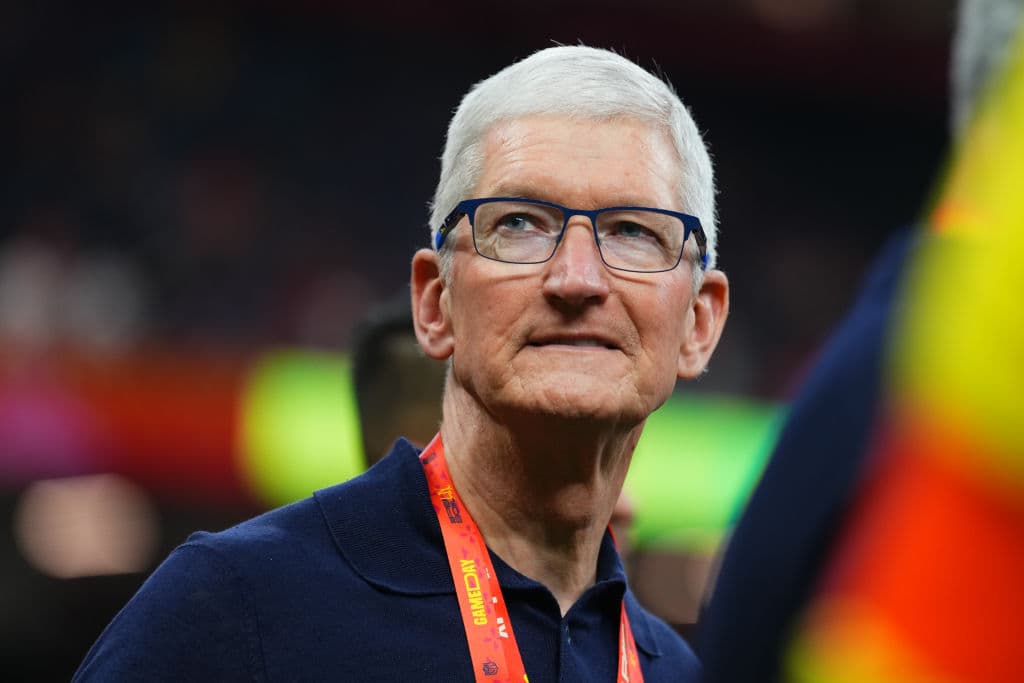Are we nearing the end of Apple’s Tim Cook era? | TechCrunch

News Summary
A Financial Times report indicates Apple is actively engaged in CEO succession planning, with discussions surrounding Tim Cook's potential departure as early as next year, following the company's late January earnings report. This timing would allow a new leadership team to settle in before major events like the Worldwide Developers Conference in June. Cook, 65, has led Apple since 2011, expanding its market capitalization from $350 billion to $4 trillion, a tenure longer than Steve Jobs's. However, the company has reportedly struggled to define its direction in artificial intelligence under his leadership. While no final decisions have been made, Apple's Senior Vice President of Hardware Engineering, John Ternus, is considered the most likely candidate to succeed Cook.
Background
Tim Cook has been one of the most influential leaders in the tech industry since taking over as CEO of Apple from Steve Jobs in 2011. During his tenure, Apple's market capitalization has seen extraordinary growth, becoming the first company globally to reach multi-trillion-dollar valuations. This success has largely been driven by the sustained popularity of the iPhone, the rapid expansion of its services business, and meticulous supply chain management. However, critics argue that while Cook excelled in operations and financial stewardship, Apple under his leadership has not been as groundbreaking in innovation, particularly in forward-looking technologies like artificial intelligence. AI is widely considered the next frontier for technological growth, and Apple's performance in this area will be critical to its future competitiveness. A CEO transition typically involves a re-evaluation of strategic direction and potential shifts in management culture, which for a company of Apple's size and influence, is a key focus for investors.
In-Depth AI Insights
What does the end of the Tim Cook era signify for Apple's AI strategy? The Cook era has been perceived as conservative regarding AI, likely reflecting a preference for incremental improvements over disruptive leaps. A new CEO, especially a hardware-focused leader like John Ternus, could bring several implications: - Hardware-driven AI Integration: Ternus's deep understanding of hardware might push Apple to integrate AI capabilities more profoundly into its device chips and ecosystem, emphasizing performance and privacy. - Potential Strategic Re-evaluation: New leadership might reassess Apple's current AI research and product roadmap, possibly considering bolder acquisitions or partnerships to accelerate its catch-up in areas like generative AI. - Cultural Shift: A new CEO could instill a stronger sense of innovation urgency, challenging existing paradigms to aggressively counter the AI pushes from competitors like Microsoft and Google. How might the successor's profile impact Apple's future products and market positioning? John Ternus, as SVP of Hardware Engineering, being the most likely successor suggests Apple may continue its hardware-first strategy, but also faces new challenges: - Continued Hardware Innovation: Ternus's appointment would likely ensure the continuation and strengthening of Apple's leadership in chip design, device manufacturing, and new hardware form factors (e.g., Vision Pro). - Software and Services Balance: The challenge lies in enhancing software and services, particularly AI-driven ones, to build a more competitive ecosystem while maintaining hardware dominance. If the new CEO lacks a strong software or services background, a more robust executive team might be needed to compensate. - Shifting Market Narrative: Investors will likely expect new leadership to introduce fresh growth narratives beyond the current iPhone cycle. This could involve more aggressive investment in new product categories like AR/VR or pursuing new breakthroughs in the enterprise market. How might Apple's leadership change be interpreted within the current US political and economic landscape? During President Trump's administration, with its emphasis on "Made in America" and technological self-reliance, Apple's leadership change gains a geopolitical dimension: - Supply Chain Resilience: The new leadership may need to further deepen Apple's supply chain diversification strategy, reducing reliance on specific regions and increasing production in the US or allied nations to align with governmental policy. - Tech Sovereignty and National Security: Amidst strained relations with key economies like China, Apple's AI strategy and data handling practices will face increased scrutiny. The new CEO will need to navigate a delicate balance between technological collaboration and national security concerns. - Antitrust Scrutiny: The Trump administration may continue its antitrust examination of large tech companies. New leadership will face the challenge of addressing potential regulatory pressures while sustaining the company's growth and market dominance.